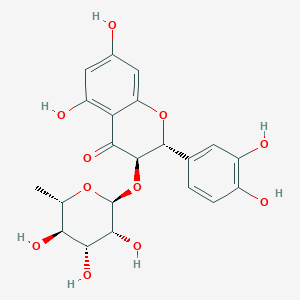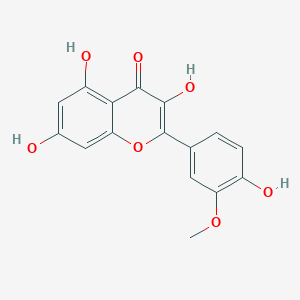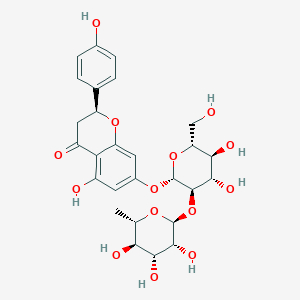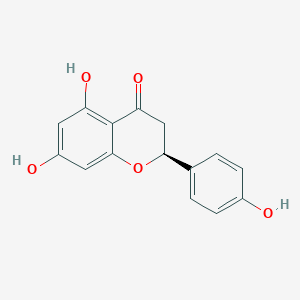Description
Astilbin is a flavonoid chemical found in plants such as Astilbe japonica, Engelhardtia chrysolepis, and Taxus cuspidata. It has been demonstrated to have anti-inflammatory, antioxidant, and anticancer properties, among other things.
Astilbin has been researched for its ability to lower inflammation and oxidative stress in the body. It has been discovered to block the generation of pro-inflammatory cytokines and enzymes as well as to scavenge free radicals, both of which are known to contribute to chronic inflammation and disease.
Furthermore, astilbin has been demonstrated to have anticancer characteristics. According to research, it can cause apoptosis (programmed cell death) in cancer cells and may also block angiogenesis. (the formation of new blood vessels that tumors need to grow).
Here are some of its main benefits and applications:
- Anti-inflammatory Properties: Astilbin has shown significant anti-inflammatory effects. It works by inhibiting the production of inflammatory mediators, making it potentially useful in treating diseases characterized by inflammation, such as arthritis.
- Antioxidant Activity: Like many flavonoids, astilbin exhibits strong antioxidant properties. It scavenges free radicals, which are responsible for oxidative stress and various diseases, including cardiovascular diseases and aging.
- Immune System Modulation: Astilbin can modulate the immune system. It has been observed to influence the activity of certain immune cells, potentially beneficial in autoimmune diseases and allergies.
- Anti-allergic Effects: Its ability to inhibit the release of histamine makes it a candidate for treating allergic reactions. Astilbin may help reduce symptoms like itching and swelling.
- Anticancer Potential: Some studies suggest that astilbin has potential anticancer effects, as it can induce apoptosis (programmed cell death) in certain cancer cell lines.
- Application in Food and Beverages: Due to its antioxidant properties, astilbin is also used as a natural preservative in food and beverages.
- Skin Care Products: In cosmetics, astilbin is utilized for its anti-inflammatory and antioxidant properties, making it a suitable ingredient for skincare products aimed at reducing redness, irritation, and aging signs.
- Potential in Treating Metabolic Disorders: Research has indicated that astilbin may have therapeutic potential in treating metabolic disorders like diabetes and obesity, though more research is needed in this area.





